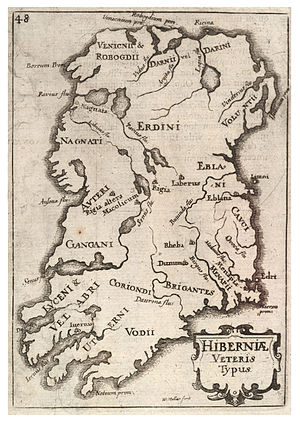Today was spent at the Dublin Institute of Advanced Studies, a curious seat of learning I have written of before. I was there for Tionól, a symposium on Celtic Studies. Not my usual stomping ground, but it’s good to go off and explore sometimes.
Ireland is fascinating because so much of what seems like the distant past happened so recently. (And vice versa.) The coming of Christianity didn’t overwrite pagan social structures. Much of their law and their system of values continued alongside the new religion. Nor did Viking settlement or Norman invasion destroy that cuture; it was only in Elizabethan times that real efforts to replace it began. So it’s almost as though we moved from the pre-Roman era directly to the early modern.
Yet there is so much we don’t understand about that past. When the change came it came fast, and though it left us a rich supply of written records, we do not always understand them.
For example, there is a word findruine that means…. Well, from its context it appears to be a precious metal. Stories speak of valuable objects of “gold, silver, findruine and bronze’ – in some it even outranks silver to become the most precious substance after gold. Yet we don’t know what it was.
Theories abound of course. My own first thought was that it might be a special version of bronze, with more copper in the mix. Or perhaps one that substituted zinc for the tin to make gold-coloured brass. But all these have been suggested over the years. Our speaker argued that none of them were right, and that the material was bronze (and perhaps other metals) that had been ‘tinned‘.
Which is not to say it had been put into cans. Tinning is the art of heating metal and then introducing solid tin to it. Tin melts at a relatively low temperature, so it spreads out on the hot surface, bonds with it, and forms a bright silver-coloured coating that resists corrosion and tarnish. The art was widely practiced until quite recent times – it gives its name to the trade of ‘tinker’ – and we know it was done by the ancients because, though it’s less robust than a pure metal, some beautiful articles of tinned work still exist.
So perhaps an ancient riddle has been solved. In the scheme of things though, it’s a relatively minor one. For example one of the most important roles in traditional Irish society was that of file. The word is usually translated as ‘poet’, yet fully qualified members of the file class were social equals to kings. And we still don’t know exactly what it was they did.
I hope to return to this.


